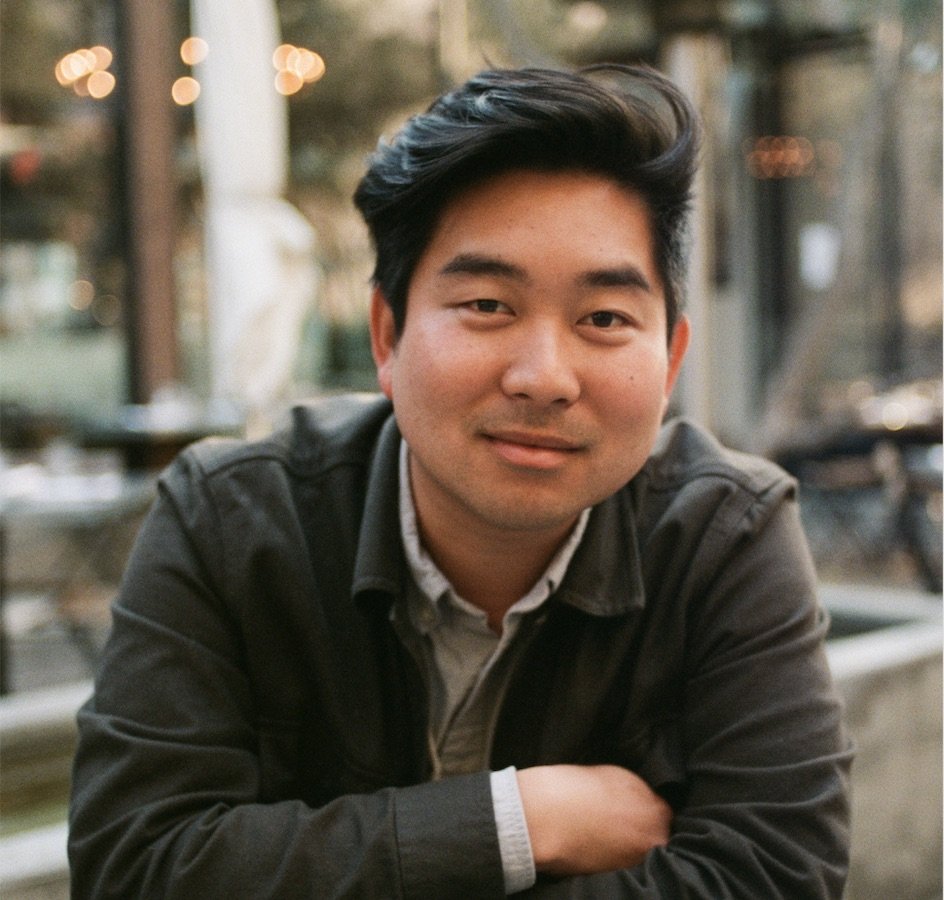James Kim
James Kim is the creator of the fiction podcast You Feeling This? with iHeartRadio. He has worked with Marvel, Radiotopia, APM, NPR, Spotify, Audible, and Gimlet. In 2019, he made the indie audio drama, MOONFACE, and recently started the podcast company Overtones. His next show, Magnificent Jerk, is a documentary series hosted by Maya Sugarman.
Describe You Feeling This? In ten words or less.
A fiction podcast mixtape about love in Los Angeles.
How did you decide who to work with and how did you work with them on the stories?
There’s a lot of great indie audio creators I wanted to hear more from. So I emailed a ton of them about doing an anthology show, and luckily people were interested in telling these intimate stories about human connection. Some had experience in audio fiction, but the majority of them have never made something in that space.
We had a pretty strict creative process since we were working with a large team. There were about 15 people just on the creators and crew side, and everyone had to be on the same page. The entire team – from producers, creators, composers, sound engineers – were working together several months before we even started recording. It helped us have the most cohesive vision and work flow for the show.
For every script edit, we identified what the main focus was – whether it was a story edit, production pass, or an edit where we focused on sound design elements. The production and post-production team also gave edits so we could make sure each story would make sense at every phase of production.
It was an organized collaborative effort. The show had so many moving parts, but the north star was making sure we stayed true to what each creator wanted to say.
There’s such a strong sense of place in You Feeling This? How do you make a podcast feel like LA (or anywhere?)
The thing we really wanted to capture is the vastness of Los Angeles. Every neighborhood in LA has its own sound, and its own stories to tell. So it was important that every story was set in a different neighborhood and setting.
I’ve done audio fiction where the actors are recorded in a sound booth with the best equipment. And all of the sound effects are added in post production. Everything sounds nice and clean, but many times that method of recording lacks the beautiful imperfections and distinctiveness that comes with recording on location.
Since our show wanted to highlight the sound of Los Angeles, we decided to ditch the recording studios and capture everything out in the world. It allowed the actors to interact with their environment, and we truly got to capture a sound of LA that I’ve grown up hearing all my life.
It took a few months to figure out how to approach recording in the field. Luckily, I had a brilliant team that included sound designer Diego Perez and sound mixer Daniel Martinez. Our producer, Cameron Kell, also had a heavy hand at figuring out our entire approach. None of this would have been possible without them.
Are you optimistic about the future of podcasting?
Looking at the immediate future – no. The system is broken and it has become more evident with the layoffs this year. Many of my colleagues, who are some of the most talented and experienced people I’ve worked with, don’t have a regular source of income anymore.
Currently, there are limited options for these people who are passionate about making audio and want to make a living doing it. Freelancing is unstable, there aren’t a lot of full-time openings, and it has become more difficult to pitch original shows.
I wish I could be more optimistic about the future and say that things will bounce back. But to be honest, I didn’t like how things were operating even when the industry was in a boom. After freelancing for a little more than three years now, I was able to work with a wide range of companies and shows. There were countless times where the shows were not properly staffed, timelines were unreasonable, and because of mismanagement, people would have to work more than what was agreed upon without a pay increase.
What these shows and gigs had in common were having inexperienced people making the decisions. This industry lacks proper training for these top level positions, and the result leads to hard working producers, engineers, assistants, interns, freelancers being exploited. It also results in podcasts that aren’t well-made.
But there is potential for a better work environment that leads to better podcasts. I see that potential in the talented producers and creators who love making things in this space. People who have experience managing production calendars, understand each step of the creative process, and who have a vision for the future of podcasting. I hope more of these people feel empowered to take on leadership roles, and that the industry creates clearer pathways to these positions.
What’s something you wish you’d known before you started making audio projects?
Since leaving my full-time job, I’ve focused on making original shows. For me, I need collaboration to make something great. So it’s important to have a team of people I trust and love working with.
It could take years to complete a podcast. And it’s become one of my priorities to build a team that gets along and compliments each other well. I’m gonna be side by side with these people for a while. And I want to have a good time throughout the creative process. Having an environment where everyone feels respected and just enjoys working together makes a huge difference in the quality of what you make.
Thanks, James!

